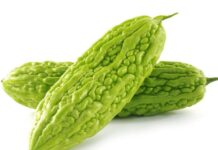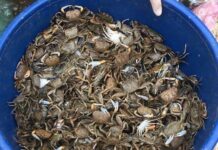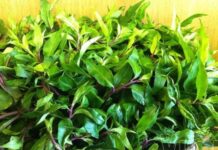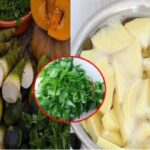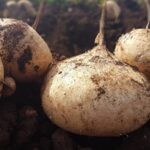3 Types of Plants That Serpents Adore
Gardenia Jasminoides
The name itself evokes images of pristine white gardenia flowers with their delicate, adorable appearance. Unbeknownst to many homeowners who plant them for aesthetic purposes, these flowers can inadvertently attract snakes.
Gardenia jasminoides emits a peculiar fragrance that proves irresistible to snakes. Blooming throughout the year, especially in May and June, the potent scent wafts further afield, making it even more alluring to these dangerous creatures. For your safety, it is best to refrain from planting gardenia jasminoides or, if already present, promptly remove them.

The pristine white gardenia flowers, with their delicate and adorable appearance, are aptly named.
Gardenia Florida
Don’t be fooled by the name; Gardenia Florida, or Cape Jasmine, is distinct from Gardenia Jasminoides. It thrives in damp environments and boasts white flowers with small petals, a spear-shaped floral tube, and a spherical floral tube base—a unique and captivating sight.
However, folklore warns that where Gardenia Florida grows, snakes are likely to appear. For peace of mind and safety, it is prudent to avoid planting this species.

Despite the similar name, Gardenia Florida is a different species from Gardenia Jasminoides.
Purple Spikenard
Purple Spikenard may not be visually striking, but its medicinal properties make it a popular choice for many gardeners. It effectively treats ailments such as stomachaches, flatulence, diarrhea, and toothaches. However, its sweet taste makes it a favorite among mice, squirrels, and hedgehogs—all of which are prey for snakes, thus inadvertently attracting them.
3 Plants That Repel Snakes
Cassava: Also known as sắn dây in Vietnamese, cassava is a potent snake repellent. The sap of this plant induces fear and keeps snakes at bay.
Lemongrass: Lemongrass is a bushy grass that grows to about 0.8-1m tall. Apart from its use in aromatherapy, lemongrass is highly effective at repelling snakes when planted in gardens, pots, or on balconies.
Snake Plant: Commonly found in households, the snake plant, or mother-in-law’s tongue, is easy to grow indoors or outdoors. Not only does it improve air quality and boost moods, but it is also excellent at keeping snakes away. With a snake plant around, you can rest assured that snakes will stay clear of your space.
The Ultimate Guide to Making Cassava with Coconut Milk: A Delectable, Buttery, and Tender Treat
Steamed cassava with coconut milk is a quintessential rustic delicacy that leaves a lasting impression on the palate. The cassava’s natural sweetness blends harmoniously with the rich and nutty aroma of coconut milk, creating a delectable treat that captivates the senses and enthralls both young and old alike.













